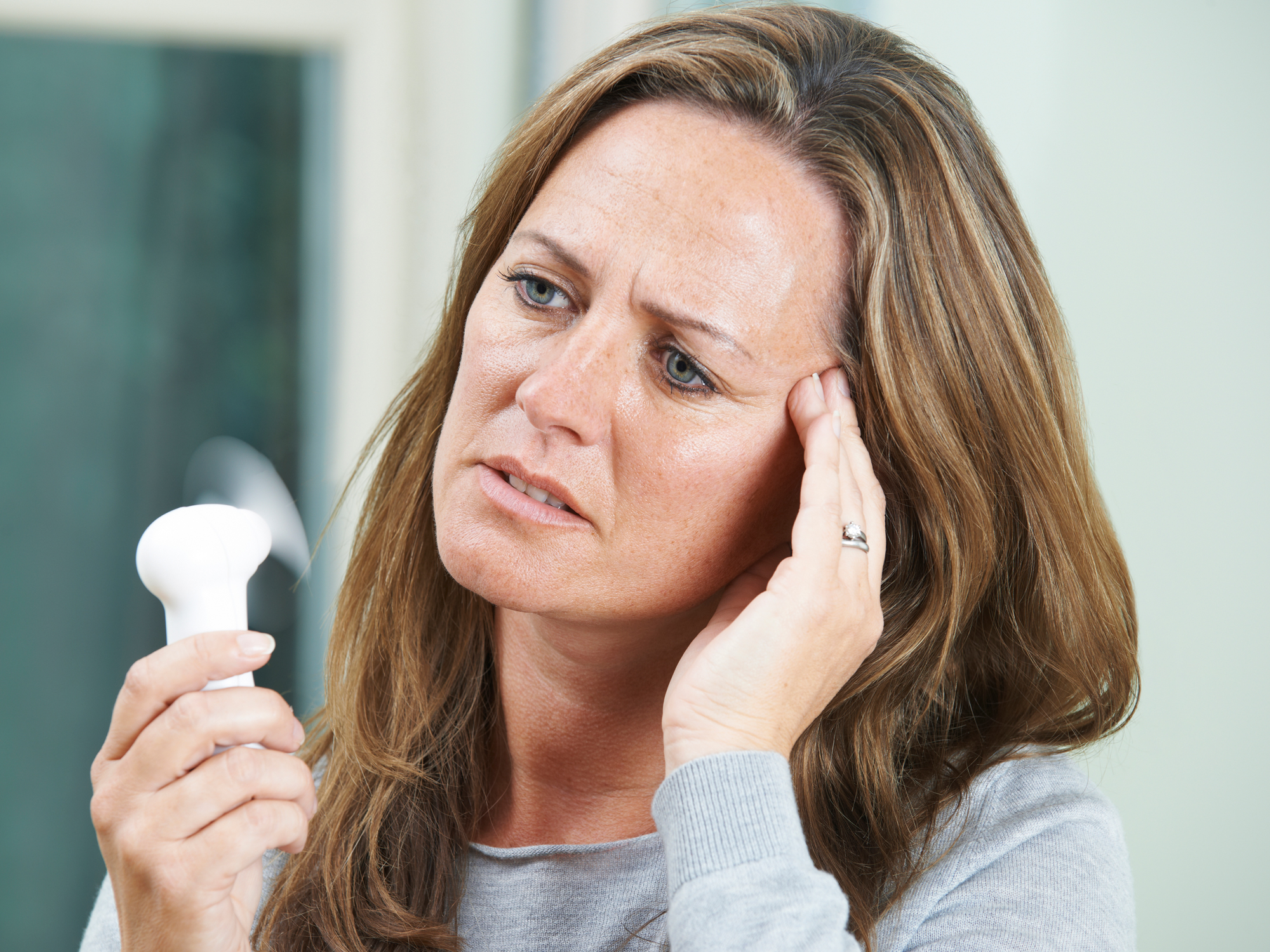Get Easy Health Digest™ in your inbox and don’t miss a thing when you subscribe today. Plus, get the free bonus report, Mother Nature’s Tips, Tricks and Remedies for Cholesterol, Blood Pressure & Blood Sugar as my way of saying welcome to the community!
The weird way bacteria can trigger menopause

During menopause women experience a drop in estrogen production signaled by some very annoying symptoms.
And while it’s easy to get hung up on hot flashes and such, that estrogen drop also has some very serious implications…
Low estrogen puts you at higher risk of many dangerous conditions — obesity, metabolic syndrome, heart disease, osteoporosis, cancer (particularly breast, endometrial and gastric) and altered brain function.
But even before you reach menopause, your gut health could be involved in increasing your risk of all of the above conditions…
That’s because the bacteria in your gut play a role in your body’s estrogen levels…
Collectively, your gut bacteria help regulate the balance of estrogen in your body by secreting an enzyme that changes estrogen into its active unbound form so that it can enter the bloodstream and bind to two different types of estrogen receptors found in the intestines, brain, bone and belly fat tissue.
From there estrogen is involved in influencing nerve development, heart health, bone density and the potential for diseases such as cancer.
But when your gut bacteria aren’t in the best shape (more bad guys to good guys), the estrobolome — the fancy name for gut bacteria involved in estrogen regulation in the gut — lose their ability to secrete the enzyme that converts estrogen.
This results in a decrease in circulating estrogens in your body — similar to what occurs in menopause… though you may not even be menopausal yet!
And disturbingly, researchers are discovering this altered gut bacteria may produce increased health problems in women of all ages. If this leads to further decreases in estrogen during menopause, well, your chances of health issues are compounded.
The good news is, researchers suggest that re-altering gut bacteria (more good guys to bad guys) might be an effective therapeutic target to prevent, or at least reduce risk of, all those health-destroying conditions just waiting to take hold.
Hopefully you’re already taking probiotics, or eating more fermented foods, like yogurt, to boost the live and active “good” bacteria in your gut. That’s a great first step. But there are a couple of other ways to really shore up these important bacteria…
1. Feed your gut bacteria.
Prebiotics, basically food for the bacteria in your gut, are comprised of two types of carbohydrates called galacto-oligosaccharides (GOS) and fructo-oligosaccharides (FOS). These are particularly beneficial for encouraging the good guys to multiply. Prebiotic food sources include:
- Jerusalem artichokes
- Chicory
- Green peas
- Leeks
- Onions
- Shallots
- Spring onions
- Dandelion greens
- Fennel bulb
- Beets
- Cashews
- Garlic
- Pistachio nuts
2. Increase butyrate in your diet.
Butyrate is a short chain fatty acid that helps to strengthen the gut barrier, reduce inflammation in the body, and support the function of gut bacteria. Therefore, your job is to generate more butyrate in your gut.
You can do this by consuming an abundance of fiber-rich foods, along with the prebiotic foods listed above. And additionally, consumption of resistant starch is recommended.
Resistant starch can be found in foods such as:
- Cooked and cooled rice
- Cooked and cooled potatoes
- Cooked and cooled beans and legumes
- Raw oats
- Green bananas
- Hi-maize flour
- Raw potato starch
And you might be surprised by the last food… butter! Butter contains 3 to 4 percent butyric acid — it’s the richest dietary source of butyrate available to us!
Menopause is an inevitable part of life. But at least you now know that boosting your gut health, a relatively easy thing to do, can help you promote better health during and after this transition.
Editor’s note: Nearly two-thirds of the 5.5 million Americans living with Alzheimer’s are women. Even though a hormone could reduce that risk, it’s not one of the usual suspects. The problem is 38.6 million Americans take a single drug every day that robs them of it, even though it’s required for optimal brain health. Are YOU one of them? Click here to find out?
Sources:
- Baker JM, et al. Estrogen–gut microbiome axis: Physiological and clinical implications. — Maturitas. 2017;103:45-53.
- Nilsson S & Gustafsson JA. Biological Role of Estrogen and Estrogen Receptors. — Critical Reviews in Biochemistry and Molecular Biology. 2008;37(1):1-28.
- Keenan MJ, et al. Improving healthspan via changes in gut microbiota and fermentation. — Age (Dordr). 2015;37(5):98.












